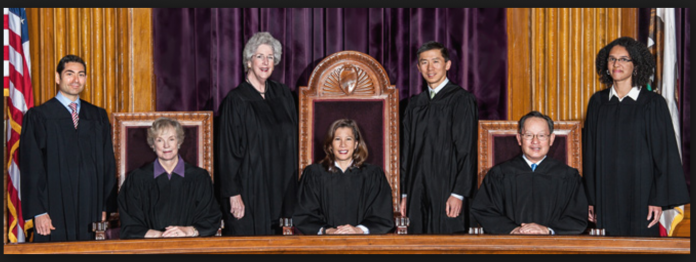The California Supreme Court last week put a sock in the argument that it’s OK for elected officials and government employees to keep citizens out of the loop by using private email and texting accounts to conduct the public’s business.
It is not OK. Period.
The ruling, in a City of San Jose case dating back to 2009, restores to the California Public Records Act the clout we believe state legislators and voters always intended.
The law was written in 1968, long before cell phones, personal computers, email and texts transformed personal, business and government communications. With a few exceptions, the law opened all government records and communications to public scrutiny.
The Supreme Court ruling should send a firm message to public servants and elected officials tempted to hide deeds and discussions about public business from that very public.
“Employees communications about official agency business may be subject to the CPRA regardless of the type of account used in the preparation or transmission,” the court ruled.
It further ruled that a public employee’s communications “related to the conduct of public business do not cease to be public records just because they were sent or received using a personal account.”
Amen to that.
The ruling looked at rights of privacy versus the public’s right to know and came down on the side of the people. It didn’t spell out in detail how to figure out which private emails are subject to disclosure or who’s to decide, that’s left that up to local jurisdictions.
It’s not the court’s role to fine tune such things, but the absence of specific guidelines should not lessen the seriousness and sincerity with which those decisions are made and applied now in state offices and those of cities, counties, school districts, water boards, and others subject to the ruling.
Here is one reason we feel so strongly about this in Gilroy.
Last year, when a batch of city emails was obtained under the public records laws and examined by this newspaper, one was beyond troubling.
In it, a city council member encouraged someone to leave the city’s email system and switch to private email, apparently to avoid scrutiny.
That such direction came from an elected official borders on despicable, exposes the city to lawsuits, and so blithely revealed a kind of arrogant reliance on secrecy that it suggested the practice has been the rule and not the exception in Gilroy.
Well, now it’s official—it’s illegal.
End of story. Get over it and get used to it.
Indeed, we believe such conduct by an elected official is a violation of one’s oath of office deserving of censure and or removal from office.
We applaud the court’s ruling. It’s a founding fathers-sized win for the people and a stunningly appropriate rebuke of those who would take from us what is rightfully ours – a form of government in which the elected and public employees work for and answer to– we the people – not the other way around.
It also is a slap in the face to the arrogant, elitist San Jose City officials and their attorneys. Theirs was a misguided attempt to keep citizens in the dark—and they used taxpayer money to do it. Worse, perhaps, is that they were supported by the League of California Cities and many city and county governments and others statewide.
Those folks and others of their ilk beat their chests when the lower court, incorrectly as it turns out, ruled in their favor a few years ago. We suggest their effigies be mounted forever, seated and facing the corners of law school classrooms adorned with dunce caps.
This journey began when the City of San Jose refused to disclose private emails requested by a citizen who was looking into a multi-million dollar development deal involving a well-connected former mayor.
It has ended well.













